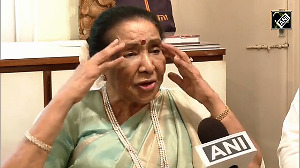Bharti Airtel, India's largest private mobile services company, is studying the possibility of entering the digital cinema business, an emerging opportunity that has attracted the attention of global telecom companies.
"We have a three-screen strategy and would like to conquer all of them by giving consumers a uniform and consistent experience," said Manoj Kohli, who was recently appointed joint managing director and CEO of Bharti Airtel.
The three-screen strategy refers to the consumer accessing TV at home through Bharti's IPTV and DTH offerings, the mobile phone in the car through the company's mobile telephone services and content on the PC through Airtel broadband services.
"In the long term we will definitely cover the fourth screen (digital cinema) also," Kohli added.
Kohli, however, did not specify whether Bharti would own a chain of digital cinema theatres (like PVR, Inox or Adlabs) or provide a digital backbone by tying up with theatres. "We are studying various media models and have not come to a decision yet," he said. Kohli added that as a group, Bharti has decided not to get into content creation or develop its own Airtel broadcasting channel.
Digital cinema films are stored on servers, which would provide large savings to production houses since the technology does away with the need for prints which constitute over 20 per cent of the cost of a film.
Digital cinema also minimises revenue losses by reducing the possibility of films being pirated on CDs after the first show. Exhibitors, however, have to invest in installing servers to receive and store films and putting up digital projectors. Films can also be distributed to cinema halls through a central server if the theatres are connected through a fibre optic link.
For instance, PVR could show a movie in halls across the country though a central server located in Delhi (assuming all its halls are connected through a fibre optic link to the central server).
Industry estimates that 10 per cent of multiplexes are already being converted to digital halls. Many Bollywood movies are being produced in digital format too and over 90 per cent of all Hollywood films will be available only in digital format, leaving exhibitors little choice but to convert.
The Bharti move is significant as telecom companies, especially with a fixed line business, are looking at various opportunities to expand revenues. For instance Reliance-Anil Dhirubhai Ambani group, which bought Adlabs a few years ago, has a national chain of movie theatres which it plans to link through a fibre optic backbone.
Globally, too, several telecom firms have expanded into this space. These include Korea's S K Telecom, which has a strategic alliance with a local digital cinema operator, France Telecom and US-based Qwest Communications which offers high-speed connectivity to Hollywood studios.






